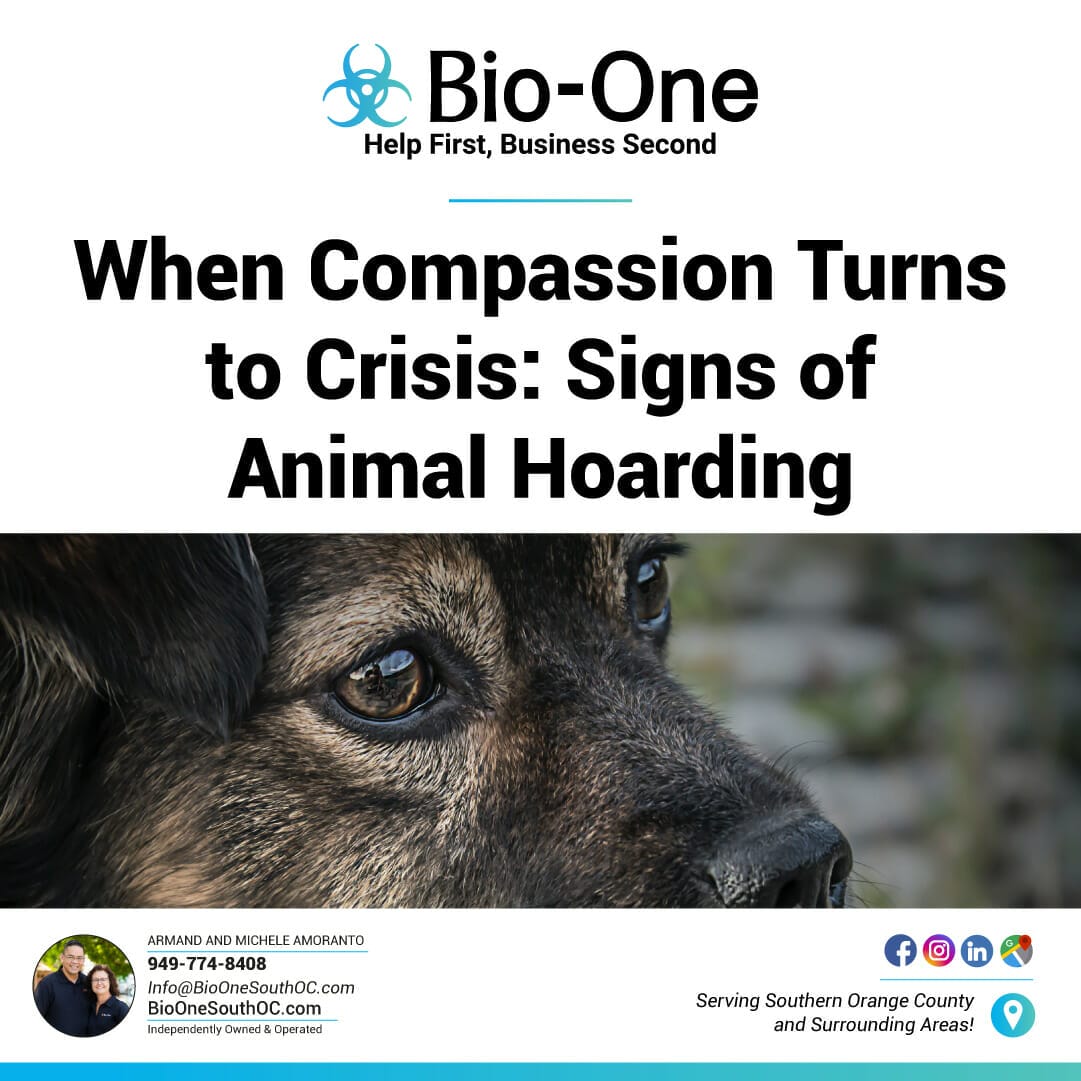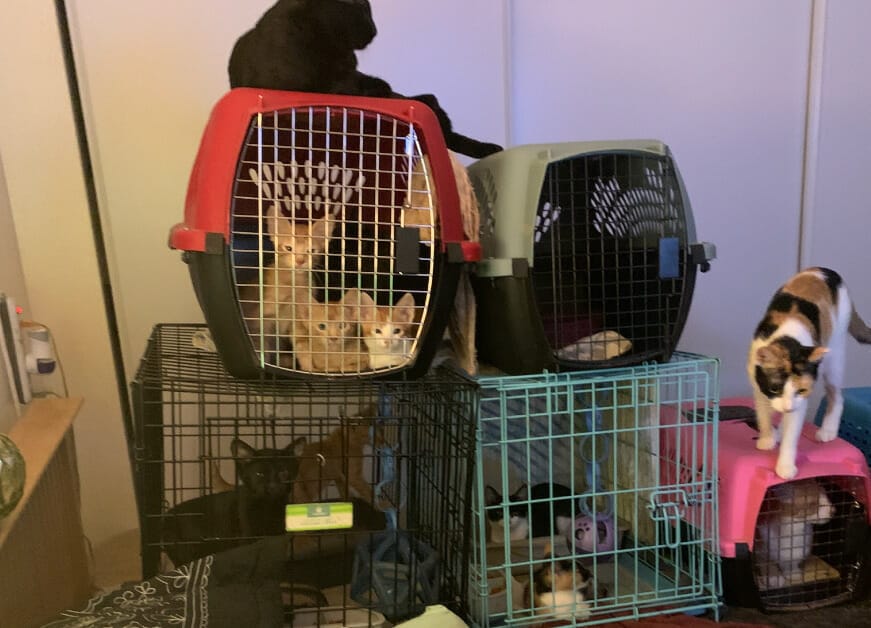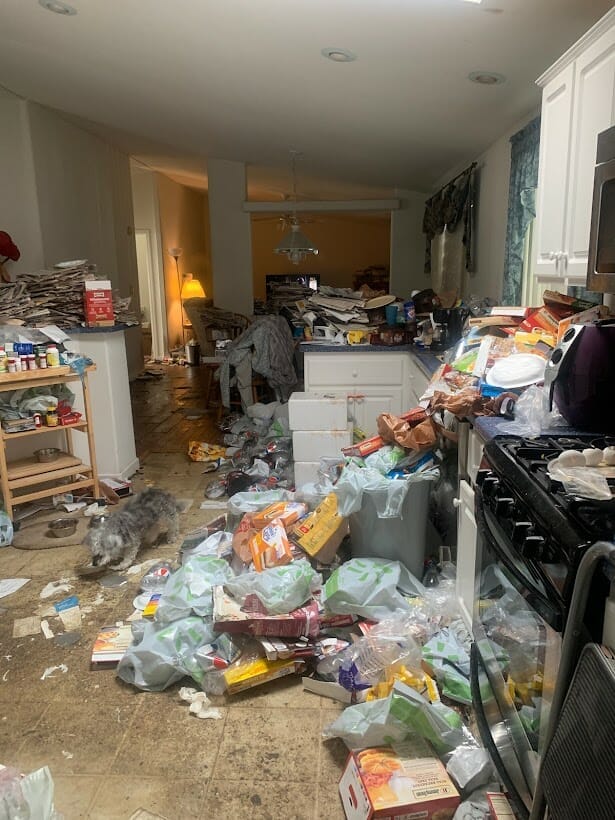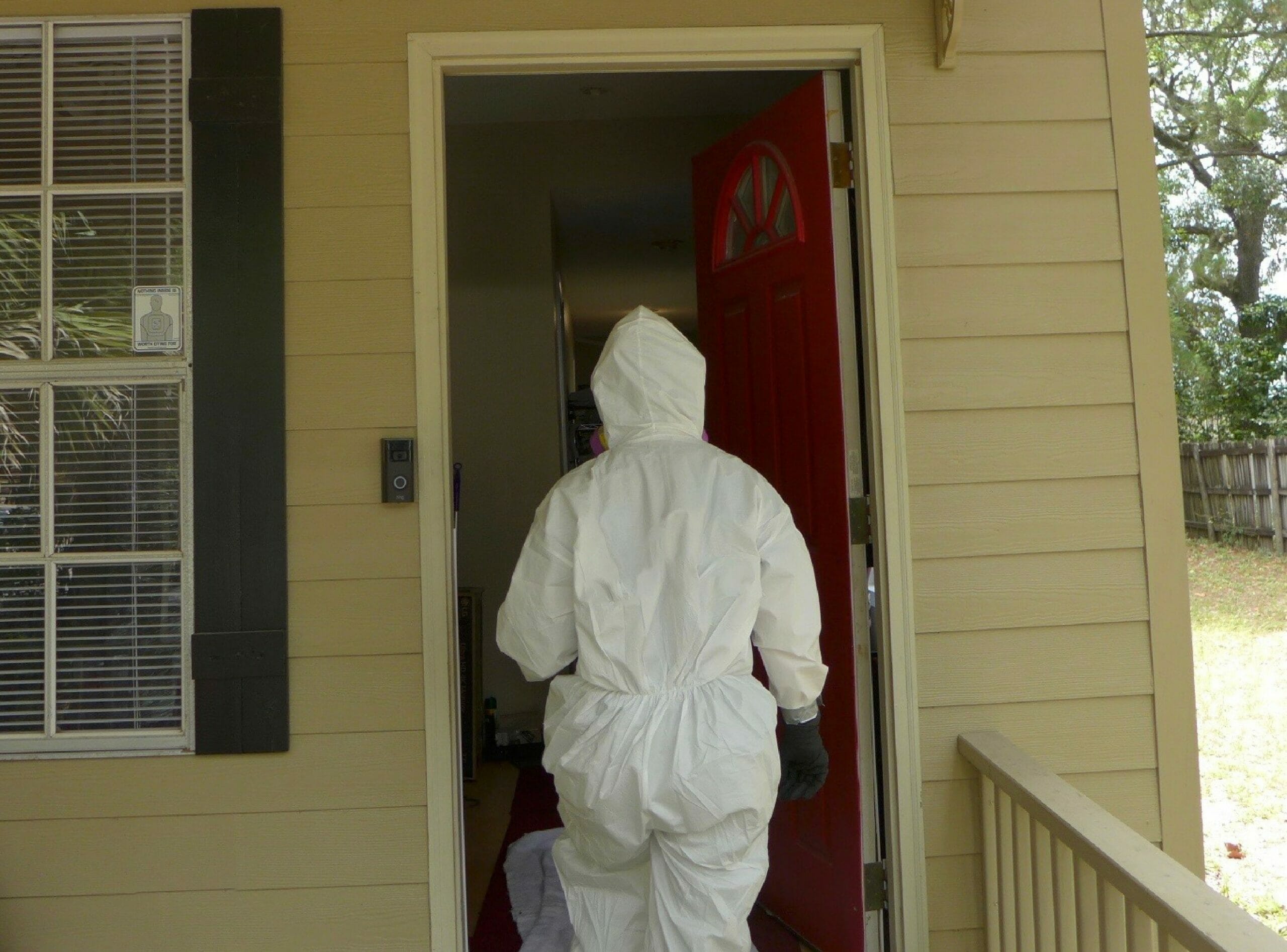
It's not always easy to recognize the signs of animal hoarding and often goes unnoticed for long periods. When it gets to a point of crisis, however, the effects can be devastating for both pets and their owners.
Animal hoarders are individuals who keep an excessive number of animals, sometimes beyond the capacity of their home and are unable to provide essential elements such as food, water, and medical attention. There are several warning signs that signify the existence of animal hoarding, and here's what you need to know to take swift action to protect those involved in the situation.
Overcrowding of Animals
This is the first and most common sign of animal hoarding scenarios. Owners will keep more animals than they can handle, leading to overwhelming living conditions for the animals. The home or space will be cluttered, dirty, and unhygienic, making it a breeding ground for diseases. Often you may smell unpleasant strong odors coming from the residence whenever you pass by!

Lack of Proper Care
The hoarder may love their animals but is unable to provide the necessary care due to their living conditions. Animal hoarding usually centers around companionship with the pets, but unfortunately, it makes it challenging for them to receive the needed care. The animals often suffer due to overcrowding, neglect, and lack of medical attention.
Denial is common, and hoarders often ignore the issue even when they're aware of it. They may also isolate themselves and restrict visitors from entering their homes, making it all the more difficult to identify animal hoarding cases.
Personality Changes
Hoarders are often dismissed as eccentric; however, hoarding behavior is a sign of a deeper psychological issue. They may show signs of anxiety disorders, depression, and other mental illnesses that may make them unfit to take care of their animals. Their personality and behavior may change over time, and you may notice small irresponsible decisions, not spending time outside their residence, avoiding social events, or neglecting their own health needs.
Deterioration of the Home and Financial Instability
Animal hoarding is challenging to sustain financially. The hoarder may struggle to make ends meet and prioritize the animals over themselves. Eventually, the owners may find themselves overwhelmed and unable to feed or provide shelter for the animals.
The home environment may also start to deteriorate due to the lack of resources. Hoarders may be unable to keep their homes clean or make repairs. As a result, the environment becomes dangerous and unhealthy.

If You Know Someone Who May Be an Animal Hoarder
Animal hoarding is a complex issue and can take many forms. If you believe that a person is struggling with animal hoarding, it's important to approach them with compassion.
Sometimes talking to a family member or friend can be helpful in motivating the hoarder to seek help. Additionally, organizations like the American Society for the Prevention of Cruelty to Animals (ASPCA) offer resources and support for individuals dealing with animal hoarding situations.
Bio-One of South OC Can Help
Animal hoarding can cause various problems for not only the hoarder but also the surrounding community. Recognizing the signs of animal hoarding is critical to intervene and prevent the problem from escalating into a more serious situation. If you encounter such situations and you’re unsure of the next steps, report the case to your local animal control authorities or other relevant authorities.
It’s important for the hoarder to seek help, recover from the hoarding tendencies, and have the animals rehomed in a healthy and safe environment.

In the event of extreme hoarding cases, Bio-One of South OC is a leading provider of biohazard cleanup services in Orange County and North San Diego County. We specialize in animal hoarding remediations. Our team has the experience and expertise to tackle these challenges with the utmost professionalism and safety protocols.


